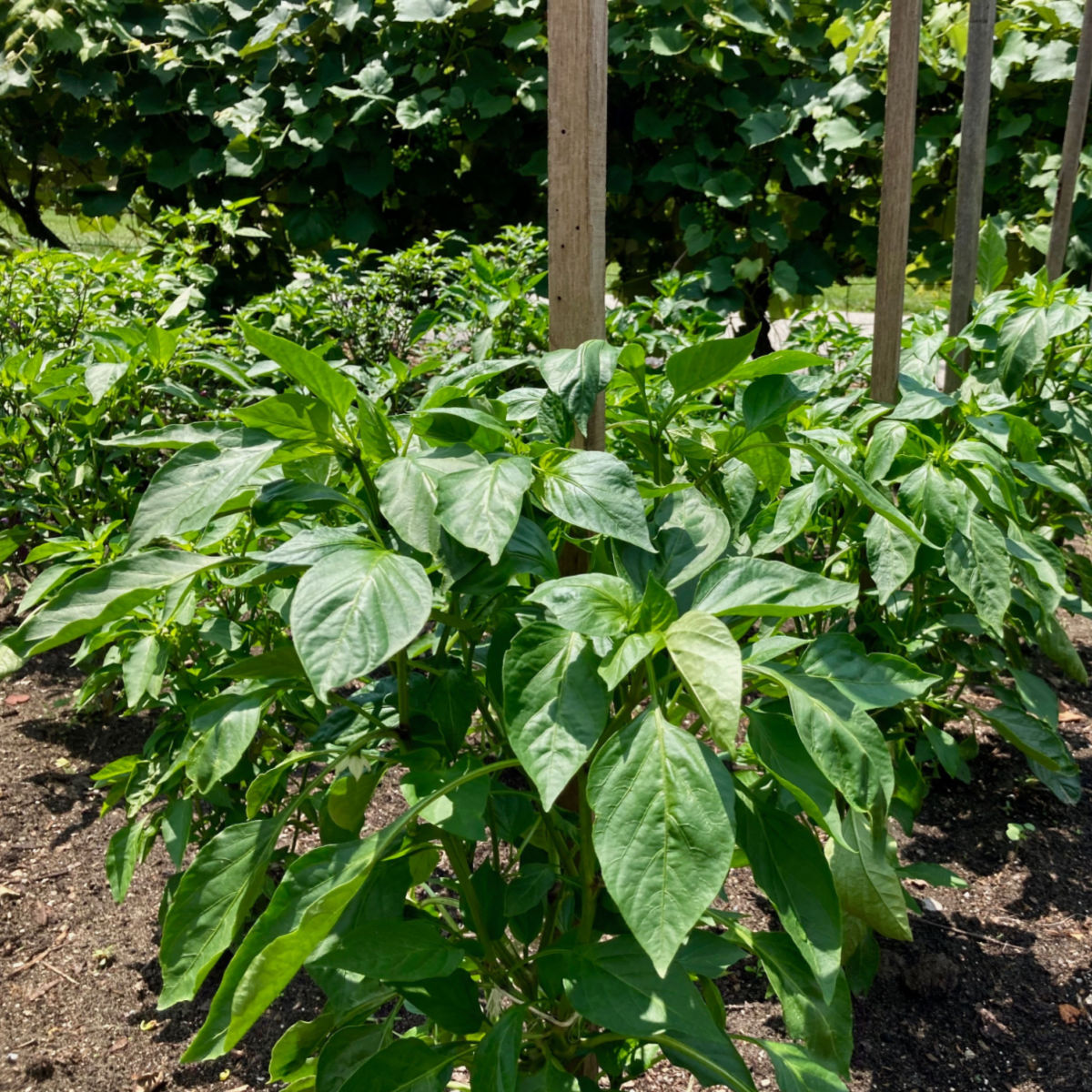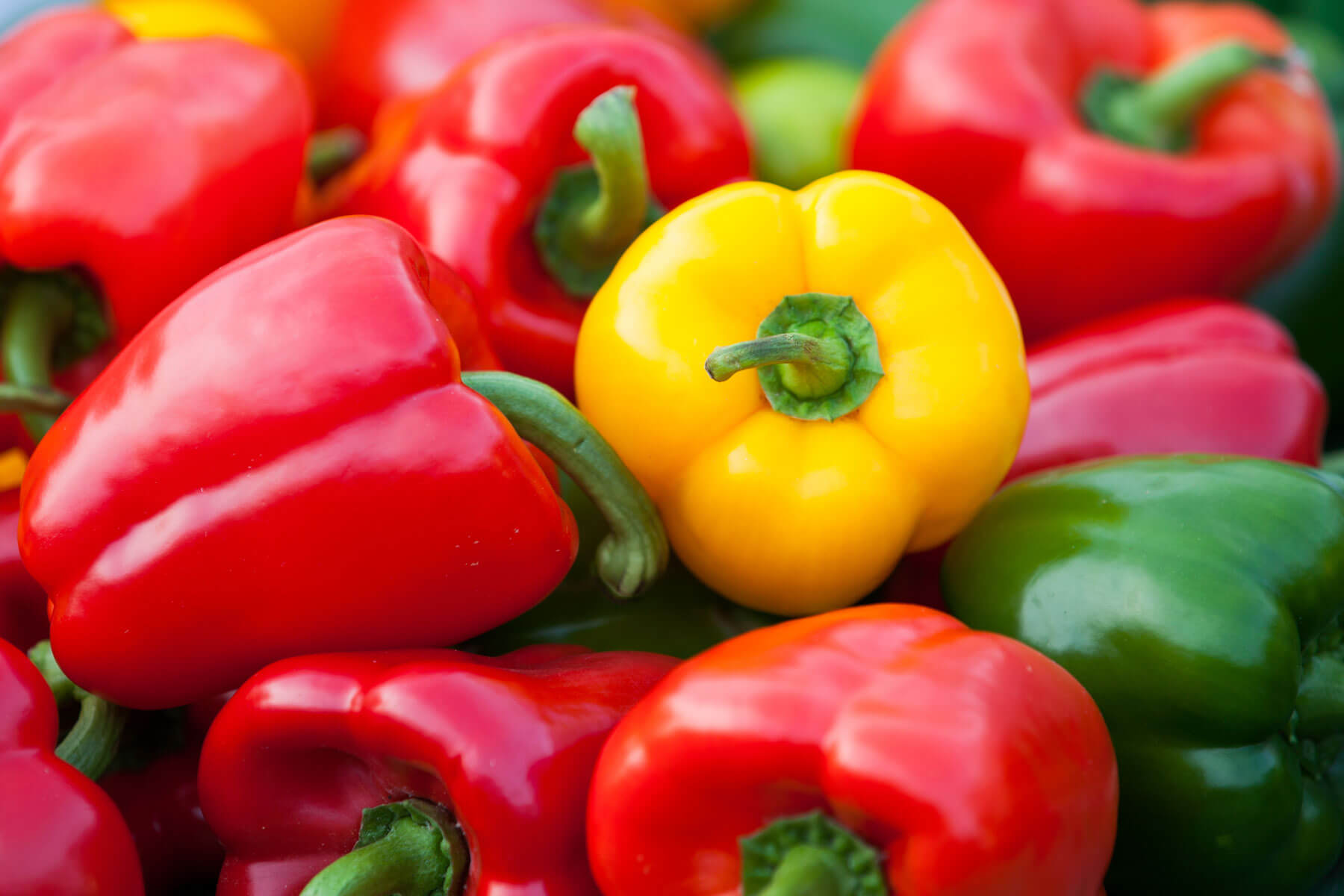Discover the Best Fertilizers for Peppers: Top Picks for Optimal Development
Discover the Best Fertilizers for Peppers: Top Picks for Optimal Development
Blog Article
Organic Vs. Synthetic Fertilizers: Which Is Best for Nurturing Healthy And Balanced Pepper Plants?
In the world of nurturing healthy pepper plants, the selection in between organic and synthetic fertilizers stands as an essential choice with far-ranging implications. While both options goal to supply essential nutrients to sustain plant development, the nuances of their influence on the dirt, plant health, and the environment trigger an argument that mirrors throughout the horticulture area. Recognizing the unique benefits and possible risks of each fertilizer kind is vital for pepper growers looking for to enhance their yields while maintaining an eco-conscious and sustainable method.
Benefits of Organic Fertilizers
Organic plant foods provide a sustainable and environmentally-friendly method to nourishing pepper plants, giving necessary nutrients without using artificial chemicals. These natural plant foods are stemmed from natural resources such as garden compost, manure, bone meal, and algae, promoting soil health and biodiversity. Unlike artificial fertilizers, natural options launch nutrients gradually, guaranteeing a well balanced and consistent supply for pepper plants to thrive.
One substantial advantage of natural plant foods is their capacity to improve soil framework and water retention. By improving dirt health and wellness, natural plant foods advertise beneficial microbial task, which helps in nutrient uptake by pepper plants. In addition, natural fertilizers decrease the danger of chemical run-off, safeguarding water resources from air pollution and guarding the atmosphere.
Additionally, natural fertilizers contribute to lasting dirt fertility by promoting the growth of advantageous soil microorganisms. These microorganisms aid break down raw material, launching nutrients in a kind that is conveniently accessible to pepper plants. best fertilizers for peppers. By cultivating a healthy dirt ecological community, organic plant foods sustain lasting pepper growing techniques that benefit both plants and the setting
Downsides of Artificial Plant Foods
Artificial plant foods, as opposed to their organic counterparts, pose various drawbacks when used to nurture pepper plants, influencing both plant health and wellness and ecological sustainability. One major drawback of synthetic plant foods is their propensity to leach nutrients from the soil promptly. This quick leaching can lead to nutrition imbalances in the dirt, triggering plants to suffer from deficiencies or poisonings. Furthermore, synthetic plant foods can harm beneficial dirt microorganisms, such as earthworms and helpful microorganisms, interfering with the dirt environment's balance.
In addition, the overuse of synthetic plant foods can add to water pollution. Excess plant foods not taken in by plants can remove right into water bodies, leading to eutrophication, where algae flowers diminish oxygen levels in the water, harming water life. Artificial plant foods are normally obtained from non-renewable sources, such as fossil gas, contributing to carbon discharges and ecological degradation during their manufacturing.
Nutrient Absorption Comparison
When contrasting organic and synthetic plant foods in terms of nutrient click to read absorption, natural plant foods have the benefit of offering an extra well balanced and slow-release resource of nutrients. Organic plant foods contain a variety of macro and micronutrients that are not only beneficial for the plants however likewise promote healthy soil microbial task, which assists in nutrient uptake.
Furthermore, organic plant foods boost dirt framework and water retention capability, enabling pepper plants to access nutrients much more effectively. This better dirt quality helps with origin advancement, allowing much better nutrient absorption. Artificial plant foods, although at first increasing plant growth due to their high nutrient focus, may prevent long-lasting nutrient absorption by derogatory dirt health and wellness gradually.
Environmental Effect Factors To Consider

On the other hand, synthetic fertilizers, although frequently more instantly available and focused to plants, can have damaging results on the environment if not applied effectively (best fertilizers for peppers). Their production requires high power inputs, about his bring about greenhouse gas discharges and adding to climate change. Furthermore, the runoff of excess synthetic plant foods can contaminate water resources, bring about eutrophication and harming aquatic environments.
Best Plant Food Practices for Peppers
To achieve this, it is essential to comply with best fertilizer practices tailored to the particular demands of pepper plants. One essential method is to carry out a dirt examination before using any type of fertilizers.
An additional important practice is to feed pepper plants at the correct time. Generally, peppers gain from getting fertilizer at planting and after that once again when they start to flower. Over-fertilizing can result in vitamins and mineral discrepancies and harm the plants, so it is important to adhere to suggested application prices.
Additionally, selecting a well balanced plant food with an NPK proportion that suits pepper plants' demands is basic. Ultimately, combining organic and synthetic fertilizers sensibly can help nurture healthy pepper plants while reducing ecological impact.
Verdict

Organic fertilizers supply a sustainable and environmentally-friendly technique to beneficial pepper plants, giving important nutrients without the usage of synthetic chemicals. Unlike synthetic plant foods, organic options release nutrients gradually, guaranteeing a steady and balanced supply for pepper plants to prosper.
Synthetic fertilizers, in contrast to their natural equivalents, posture different disadvantages when used to nurture pepper plants, influencing both plant health and environmental sustainability. When comparing natural and artificial fertilizers in terms of nutrient absorption, organic fertilizers have the benefit of giving a much more well balanced and slow-release resource of nutrients.In addition, natural plant foods boost dirt structure and water retention capability, enabling pepper plants to gain access to nutrients much more effectively.
Report this page